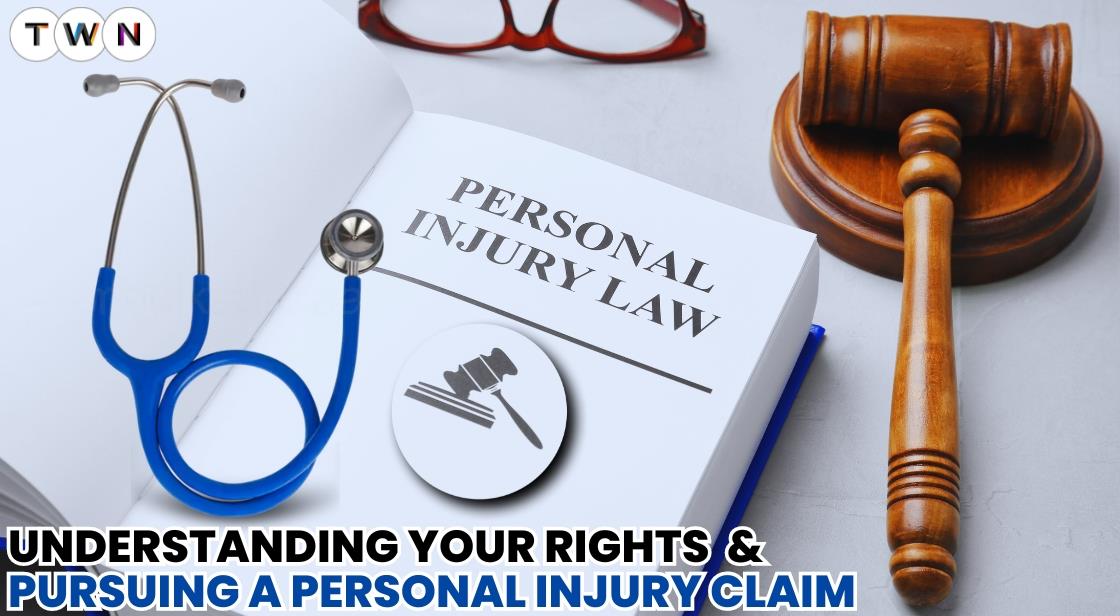Understanding Your Rights and Pursuing a Personal Injury Claim

Blog Post
According to data from the Centers for Disease Control and Prevention, 39.5 million personal injury cases in the United States require medical treatment annually.
This means roughly 126.3 cases per 1,000 people. The majority of these cases involve motor vehicle accidents, medical malpractice, product liability, workplace accidents, and premises liability.
Personal injury lawyers from Berenson & Associates, PC say in a personal injury case, one of your rights is usually to ask for compensation to cover your medical bills, missed pay, pain and suffering, and other losses that are directly linked to your injury.
Reaching out to a personal injury lawyer is important because they can help you understand your legal choices, handle the complicated parts of your case, and fight for you. Read on to better understand your rights and pursue your personal injury claim.
Understanding Your Rights and Pursuing a Personal Injury Claim
Immediate Steps to Take
A Baton Rouge injury lawyer states that gathering information such as the names and contact details of all parties involved, insurance information, and eyewitness accounts is important to ensure that you can contact other parties involved in the accident.
Take photos of the accident scene, including any damages and injuries sustained. By doing so, you can build a strong case.
It is also important to seek medical assistance right away, even if you believe your injuries are not severe. Some injuries may not be seen physically, and having a medical record can strengthen your case. Do not forget to save any medical reports and receipts for reimbursement purposes.
Report the incident to the insurance company and your own insurance carrier as well. Be factual in your statements and avoid admitting fault. By being proactive, you can protect your interest and streamline the claims process.
Determining Liability After the Accident
When determining the liability, it should start by determining your case, whether it is car accident, premises liability, medical malpractice, workplace accident or product liability. Depending on the specifics of the situation, liability for accidents may lie with the company, the owner, or even a third party.
As mentioned, evidence such as testimony from witnesses, police records, and any available video footage should be gathered in order to establish liability. It's also necessary to record what happened, if there was damage, and any injuries received.
In the event that you were hurt, you may qualify for damages. To get paid for any losses you suffer, you must first know who is responsible for the accident.
Also Read: Key Reasons Health Insurance is Crucial for Young Adults' Future Security
Insurance Coverage
Insurance companies play a big role in personal injury cases by acting as intermediaries between the injured party and the at-fault party. They start by evaluating claims, reviewing accident details, assessing injury severity, determining liability, and estimating damage costs.
Once the claim is evaluated, they negotiate settlements, though the initial offer may not fully cover the victim’s losses.
Having a lawyer can provide guidance in negotiating a fair compensation. Your lawyer will use their expertise to make sure that all the sufferings and damages are being considered when negotiating a settlement. Your lawyer will use all the evidence to leverage your claims.
Steps to Pursue a Personal Injury Claim
After an accident, quickly gather all relevant documents to file a personal injury claim. This includes any documents related to your injuries and the accident, such as bills, receipts, and medical records. A copy of the police report, witness statements, and any correspondence with the company or insurance providers should also be obtained.
Images of the accident scene, your injuries, and any damage to your property may also be very important proof in your claim.
Next, hire an attorney who has dealt with the same case as yours. A lawyer can guide you through the legal system, represent you in negotiations with insurance providers, and make sure your rights are upheld all the way through the claims process.
Once you have gathered the required paperwork and consulting legal counsel, submit a claim to the relevant insurance providers. Make sure you have all the information necessary to describe the accident, your injuries, and any related costs. Maintain contact with your lawyer and heed their advice to improve your chances of getting your personal injury claim approved.
Conclusion
Dealing with a personal injury claim can be overwhelming, but understanding your rights and the steps involved can ease the process. Remember that you don’t have to deal with this alone.
Your lawyer’s expertise will enable you to focus on getting the medical help that you need as well as the compensation for your injuries and suffering.
You May Like
EDITOR’S CHOICE












